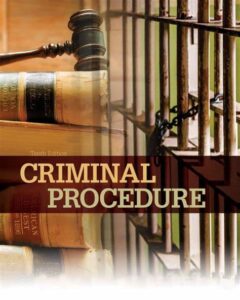NO WITNESS SHALL BE COMPELLED TO BE A WITNESS AGAINST HIMSELF VIS-À-VIS POWERS OF COURT UNDER SECTION 319 CODE OF CRIMINAL PROCEDURE 1973
Author : Utkarsh Srivastava
Advocate-On-Record (Supreme Court of India)
 This paper discusses about the rights of a witness. Whether a witness can be compelled to be a witness against himself. Scope of the power and jurisdiction of Sessions Court under Section 319 of the Code of Criminal Procedure 1973.
This paper discusses about the rights of a witness. Whether a witness can be compelled to be a witness against himself. Scope of the power and jurisdiction of Sessions Court under Section 319 of the Code of Criminal Procedure 1973.
“Nemo Tenetur Prodere Seipsum”: No one is bound to criminate himself and to place himself in peril.
The above maxim is used under English Law, where a witness need not answer any question, the tendency of which is to expose the witness. The privilege is given to encourage all persons to come forward with evidence by protecting them as far as possible from injury.
This although may result in failure of justice when the knowledge about a particular fact or evidence essential for adjudicating the case is solely with the witness but the court is deprived of such information because he is using his privilege to be excused from testifying because such information may incriminate him.
Therefore, Section 132 of the Indian Evidence Act 1872 withdrew that absolute privilege and made it compulsory for the witness to testify but at the same time granted him a qualified protection. Section 132 provides that a witness shall not be excused from answering any question on the ground that the answer to such question will incriminate such witness or expose him to a penalty or forfeiture of any kind. The Proviso to the Section although protects the witness and provides that no such answer shall subject the witness to any arrest or prosecution except for giving false evidence. The proviso to Section 132 is based upon the above maxim.
Recently, Hon’ble Supreme Court of India in Raghuveer Sharan v. District Sahakari Krishi Gramin Vikas Bank & Anr., 2024 INSC 681 observed that the statutory immunity provided to the witness under Section 132 is an extension of the protection enshrined under Article 20(3) of the Constitution of India, which is,
“No person accused of any offence shall be compelled to be a witness against himself”
In Laxmipat Choraria v. State of Maharashtra, AIR 1968 SC 938, Hon’ble Supreme Court of India had settled that the proviso to Section 132 is a necessary corollary to the principle under Article 20(3) of the Constitution of India. It was held that the privilege of refusing to answer has been removed but at the same time it was necessary to give the protection because a person who voluntarily answers questions from the witness box waives that privilege. In this respect the witness is in no worse position than the accused who volunteers to give evidence on his behalf or on behalf of a co-accused.
Hon’ble Supreme Court in Raghuveer Sharna (Supra) has further observed that,
“15. A perusal of the legislative history would reveal that the object of the law is to secure evidence which could not have been obtained. The purpose for granting such a statutory immunity was to enable the court to reach a just conclusion (and thus assisting the process of law).”
Similarly, in R. Dinesh Kumar @ Deena v. State Represented by Inspector of Police & Anr., (2015) 7 SCC 497, two judges Bench of the Hon’ble Supreme Court held that the policy under Section 132 of the Act appears to be to secure the evidence from whatever source it is available for doing justice in a case brought before court.
But, what about those situations where apart from the statement made by the witness there are other materials available against him for summoning as an accused.
 In such cases, questions which arise are,
In such cases, questions which arise are,
-
- Whether the qualified privilege under Section 132 is absolute or the protection is limited only to the extent of statements made by the witness?
-
- Whether the power under Section 319 of the Code of Criminal Procedure 1973 can be exercised by a Court which is confronted with evidence other than the statement of the witness?
Both these questions have been answered by the Hon’ble Supreme Court in its recent judgment passed in Raghuveer Sharan Case (Supra), holding that,
“22. There cannot be an absolute embargo on the Trial Court to initiate process under Section 319 Cr.P.C., merely because a person, who though appears to be complicit has deposed as a witness. The finding to invoke Section 319 Cr.P.C., must be based on the evidence that has come up during the course of Trial. There must be additional, cogent material before the Trial Court apart from the statement of the witness.
23. An order for initiation of process under Section 319 Cr.P.C against a witness, who has deposed in the trial and has tendered evidence incriminating himself, would be tested on the anvil that whether only such incriminating statement has formed the basis of the order under Section 319 Cr.P.C. At the same time, mere reference to such statement would not vitiate the order. The test would be as to whether, even if the statement of witness is removed from consideration, whether on the basis of other incriminating material, the Court could have proceeded under Section 319 Cr.P.C.”
…Emphasis Supplied
Thus, it has been settled now that, the protection under Section 132 Indian Evidence Act 1872 is limited only to the self-incriminating statement made by the witness and Court can take cognizance of the offence admitted in the statement by the witness if other material evidence is available with the court making a prima facie case against the witness. The immunity provided under Section 132 is not a complete and unfettered immunity but is conditional upon the availability of additional and cogent material before the Court.
You can explore our other articles here: Articles By Saral Legal Solutions
For more information on Criminal Laws. Visit the Page: Criminal Cases